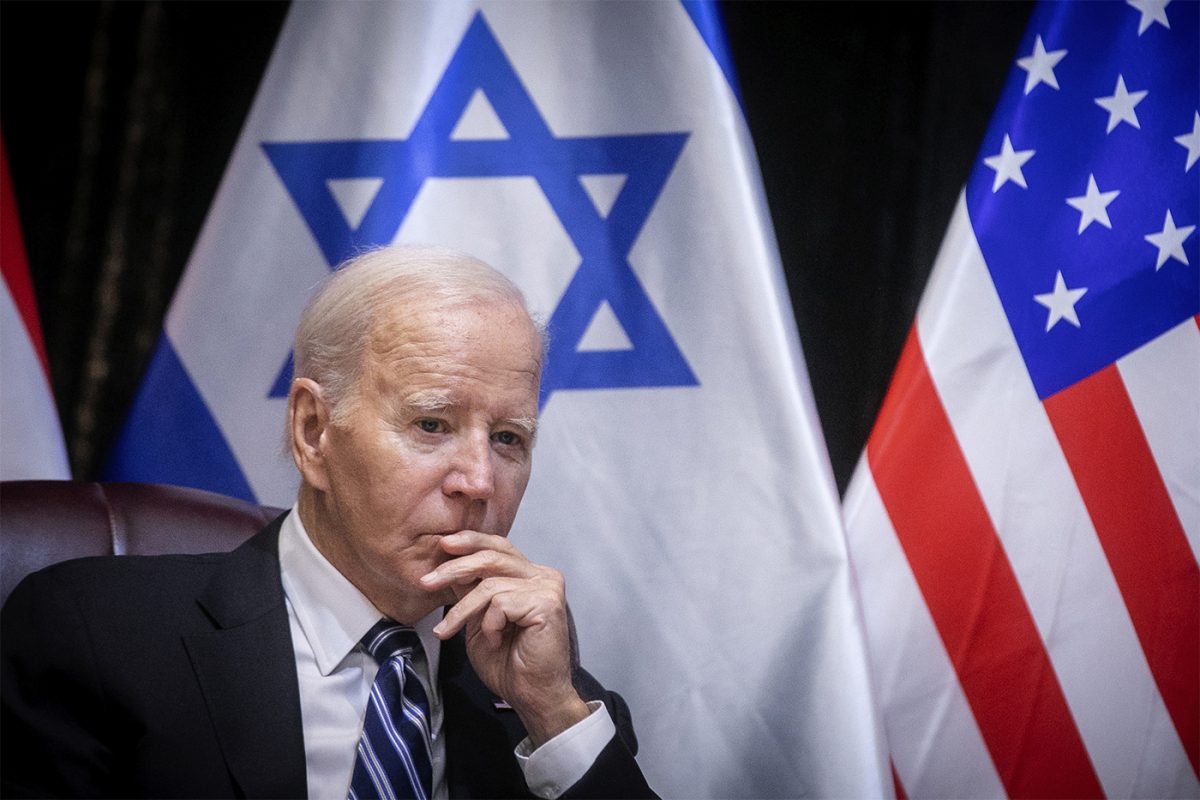On Saturday Oct. 7, 2023, the Islamic militant group Hamas attacked Israel after destroying security fences and killed an estimated 1,400 Israeli citizens and captured over 200 prisoners. Since the start of the Israel-Hamas war, thousands of citizens on both sides have died along with immense amounts of infrastructure destroyed. With the multifaceted Israel-Hamas war, foreign relations are the hot seat of discussion around the world.
United States
The United States has been one of Israel’s closest allies since 1949. After the attack on Israel, President Joe Biden sent the USS Gerald R. Ford and Dwight D. Eisenhower carriers to the Mediterranean Sea to stand by and prevent a regional conflict involving the entire Middle East. While the United States has not officially declared their stance amidst the Israel-Hamas War, President Biden stated on Oct. 20 that, “In Israel, we must make sure that they have what they need to protect their people today and always.”
Turkey
Turkey, a member of the North Atlantic Treaty Organization, has remained an American ally for years and created one of the strongest military forces within the Middle East. On Oct. 5, two F-16’s shot down a Turkish UAV drone in restricted airspace after it was deemed a threat to a U.S. military base. U.S Pentagon spokesman Brigadier General Pat Ryder said that destroying the drone was a, “regrettable incident.” Turkey’s president, Recep Tayyip Erdoğan, said in his address to the AK Party that, “in this picture, the tears that Western powers shed for Israel, while turning a blind eye to the cruelty in Gaza, is nothing but the biggest example of fraud.”
Iran Backed Militia Groups
The United States experienced a massive increase in drone and air strikes by local militias in the Middle East since the beginning of the Israel-Hamas war. These militias, known as proxies, are suspected to be funded by the Iranian government and injured dozens of American military personnel. On Nov. 12, the U.S. Department Of Defense released a statement saying that “U.S. military forces conducted precision strikes today on facilities in eastern Syria used by Iran’s Islamic Revolutionary Guard Corps (IRGC) and Iran-affiliated groups in response to continued attacks against U.S. personnel in Iraq and Syria.” On Nov. 8, the United States bombed a Syrian base used by the Islamic Revolutionary Guard Corps which the Department Of Defense suspected to be a weapons storage depot. In Yemen, an American MQ-9 drone was shot down by suspected Iran-backed militias over the Red Sea.
War On Terror
The conflict and opposition toward the United States inside the Middle East has been a gradual buildup over the past 33 years. Ever since the Gulf War in 1990 when Iraq leader Saddam Hussein invaded Kuwait, the United States has a looming presence throughout the Middle East. The U.S. engaged in dozens of conflicts and operations within the Middle East, and has fought back against terrorist groups that have expanded in overwhelming strength and numbers since 2001. Currently, the U.S. supports militia groups in Syria and the Middle East through Operation Inherent Resolve that works to fight the Islamic State of Iraq and Syria, best known as ISIS.
TLDR (Too Long; Didn’t Read)
The Israel-Hamas war worsened conflict in the Middle East and increased tensions between nations across the world. With a deep-rooted opposition toward Western influence throughout the Middle East, the United States faces many challenges ahead with foreign relations and taking precautions in case of a conflict that pulls in NATO, more Middle Eastern countries, or possible terrorist attacks.









